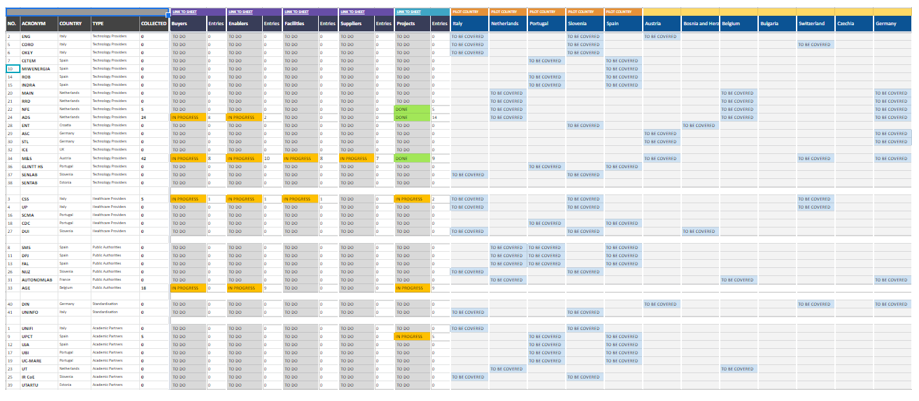
11 Aug MAGDA: Advancing meteorological insights through strategic clustering and stakeholder engagement
The MAGDA project leverages advanced GNSS and drone technologies to enhance meteorological assimilation for agriculture. Through a multi-layered clustering and stakeholder engagement strategy, MAGDA aims to broaden its outreach and cultivate impactful partnerships, thereby maximising the visibility and application of its innovative solutions.
MAGDA has established a comprehensive clustering strategy that connects the project with parallel initiatives and key stakeholders, promoting synergies and collaborative opportunities. This strategy includes forming the “Collaborative Organisation of remote Sensing and other Practical Applications for Clustering Exploitation (COSPACE)” Project Group (PG) in response to the EUSPA call, which aims to promote innovation through shared insights and collaborative ventures. Overall, the goal of the PG for clustering is to harness the collective expertise, resources, and momentum of diverse stakeholders to advance knowledge, innovation, and key impacts in this specific thematic area, ultimately contributing to the success and sustainability of the larger project outcomes and forwarding innovative initiatives. The official formation of the PG has been strongly linked to the start of the Horizon Results Booster Module A service for joint dissemination and the building of a joint identity under the title “COSPACE”, which is the result of a collective vote and a group-wide poll, where members contributed their suggestions.

COSPACE Project Group
Project group SWOT analysis
The SWOT analysis for the Project Group revealed a strategic overview that emphasised the collective strengths, weaknesses, opportunities, and threats as a foundational step in formulating a robust dissemination strategy. The projects within the group capitalised on advanced technologies and strong collaborations. However, the analysis also recognised potential challenges related to timelines and resource management.
Opportunities were identified in the increasing public interest in environmental issues and alignment with key political objectives. On the other hand, the analysis also highlighted potential threats, such as competition from similar initiatives and possible resistance due to economic and political factors.
Stakeholder analysis
Initially, all potential stakeholders relevant to the project were identified and subsequently categorised based on their influence and interest. Comprehensive information was gathered to understand their specific needs and concerns, which facilitated the development of tailored engagement plans. These plans were continuously monitored and adapted to ensure effective management.
Policy Makers and Funding Agencies (SWIFTT, BUILDSPACE) displayed proactive and supportive engagement, recognising the alignment with sustainability and policy goals. Energy Business Groups and Aggregators (RESPONDENT) were supportive, particularly valuing the enhanced smart grid management capabilities. Large Enterprises (SWIFTT, 100KTREEs, BUILDSPACE) provided generally supportive feedback, benefiting from insights into forest health and energy efficiency. Civil Society, NGOs, and Citizens (100KTREEs, BUILDSPACE) were engaged to promote participation and awareness, with tools for urban environmental management being made available.
Priority stakeholders included ICT operators/service providers, large enterprises, start-ups and SMEs, policy makers and funding agencies, researchers and academia, innovation platforms and clusters, and civil society, NGOs, and citizens. This strategic engagement ensured that stakeholder needs and concerns were effectively addressed, maintaining their informed and supportive stance towards the project’s goals.
Links
https://www.youtube.com/@MAGDA-Project
https://www.linkedin.com/in/magda-project/
Keywords
stakeholder analysis, clustering, project group, meteorological assimilation, advanced GNSS, drone technologies

